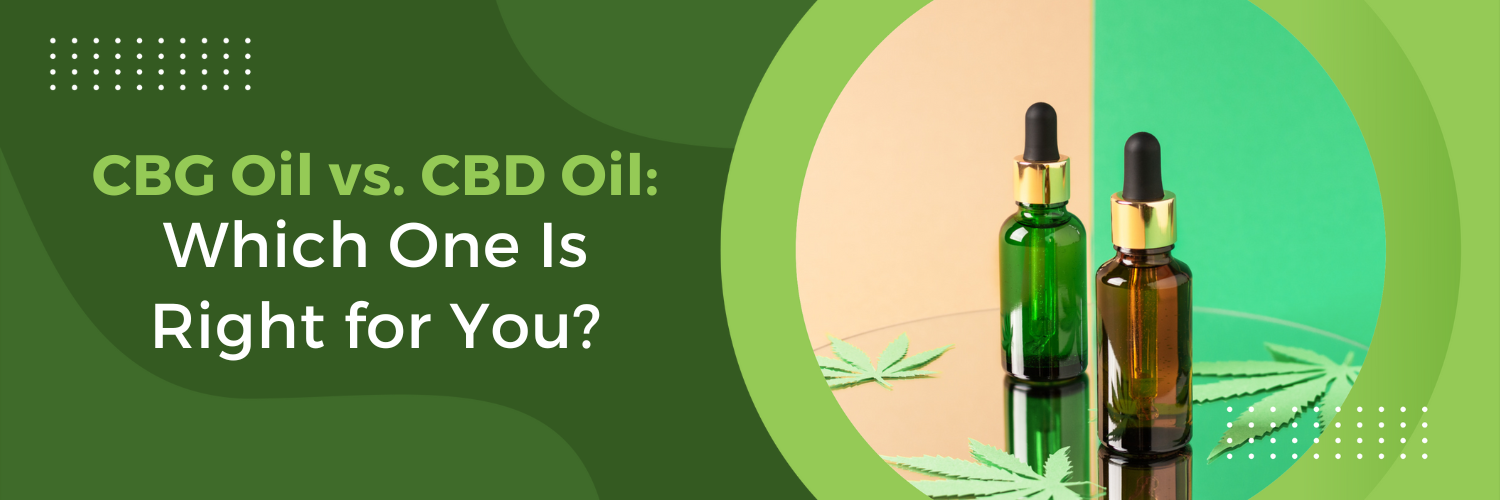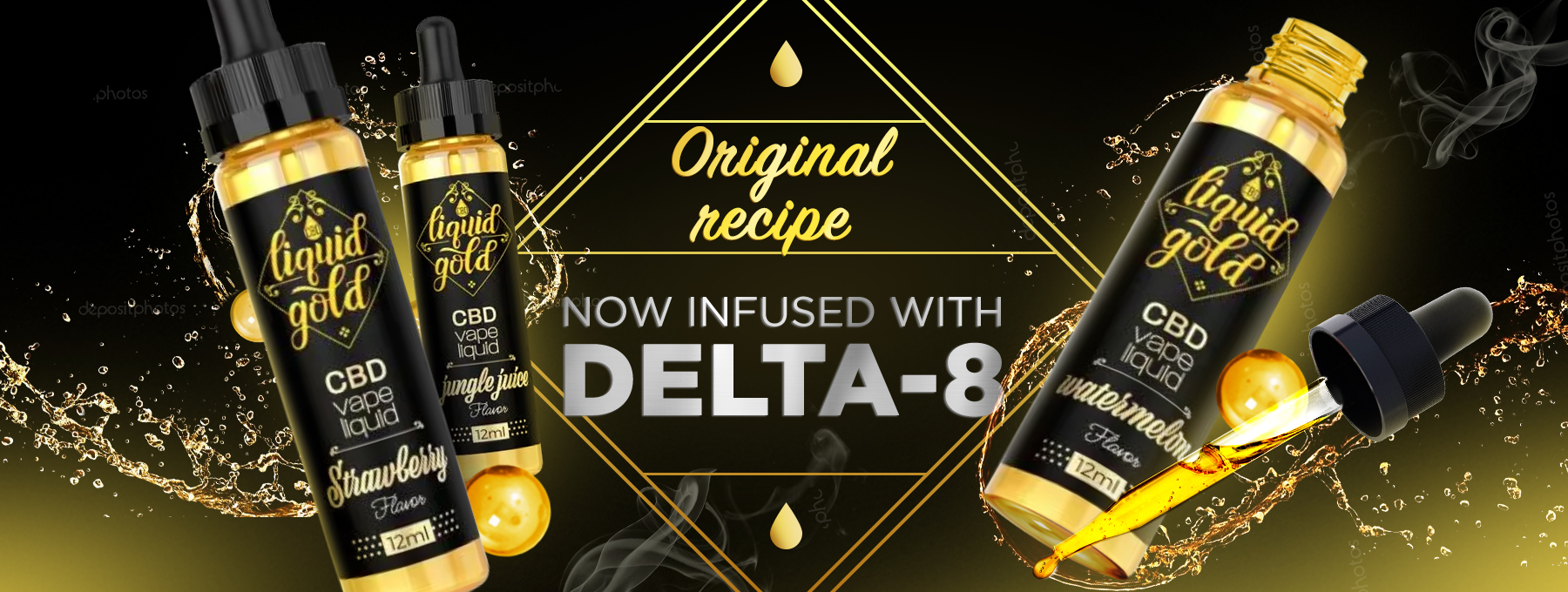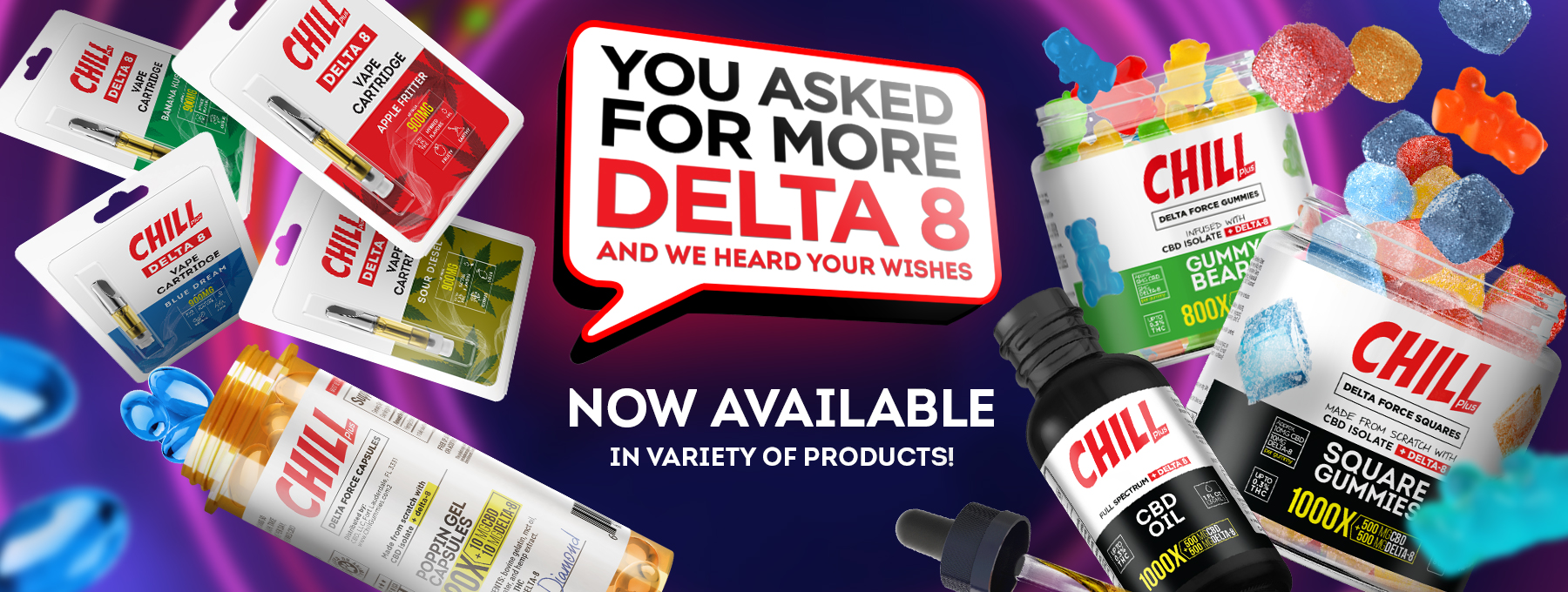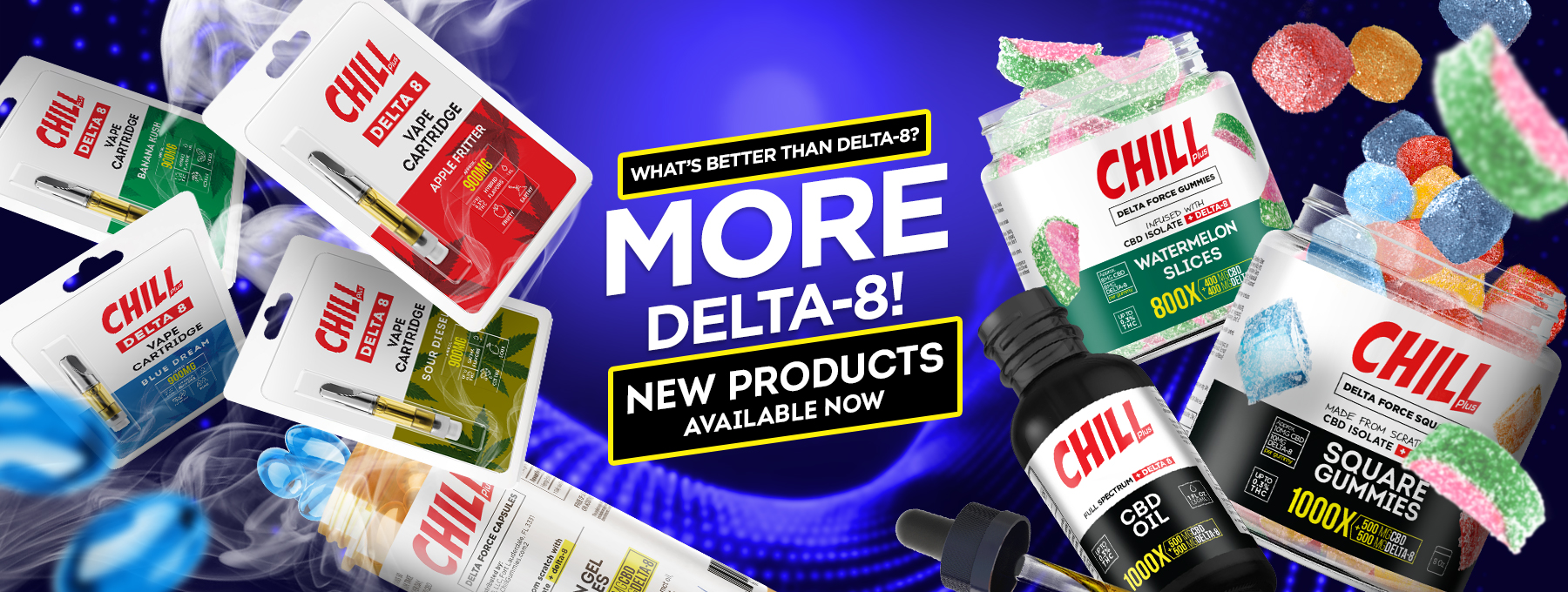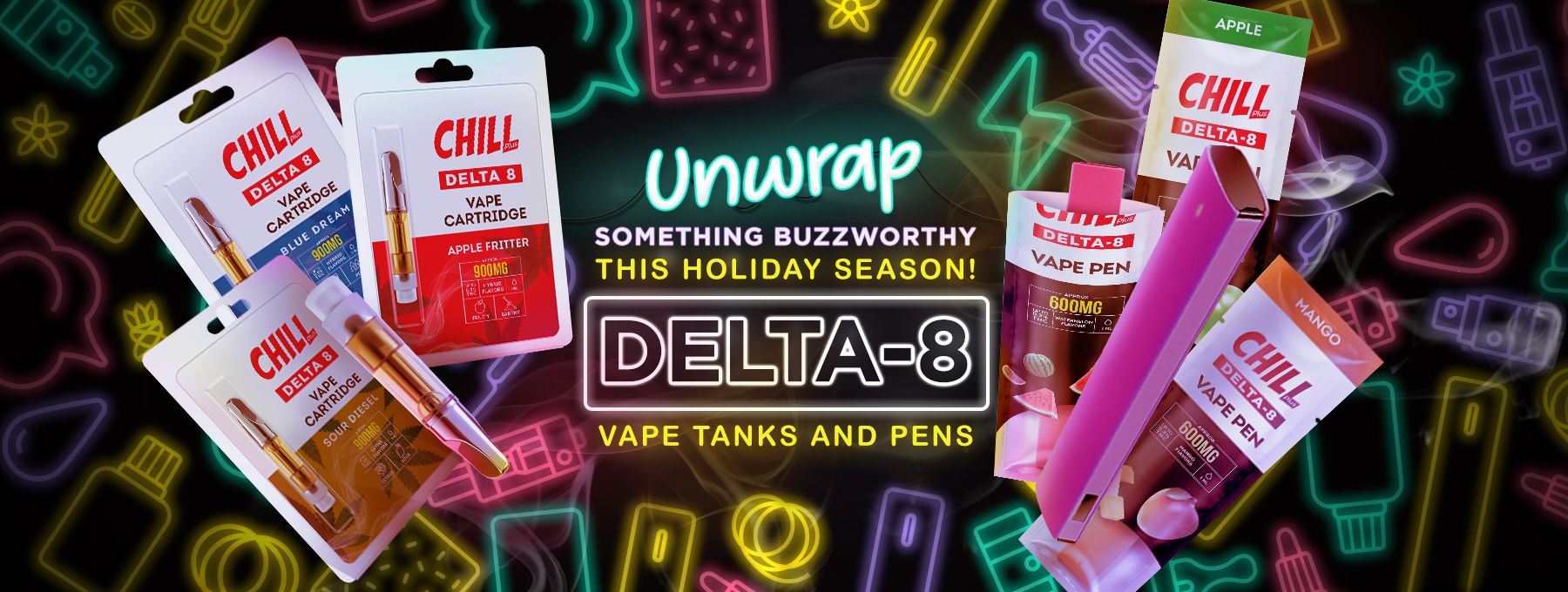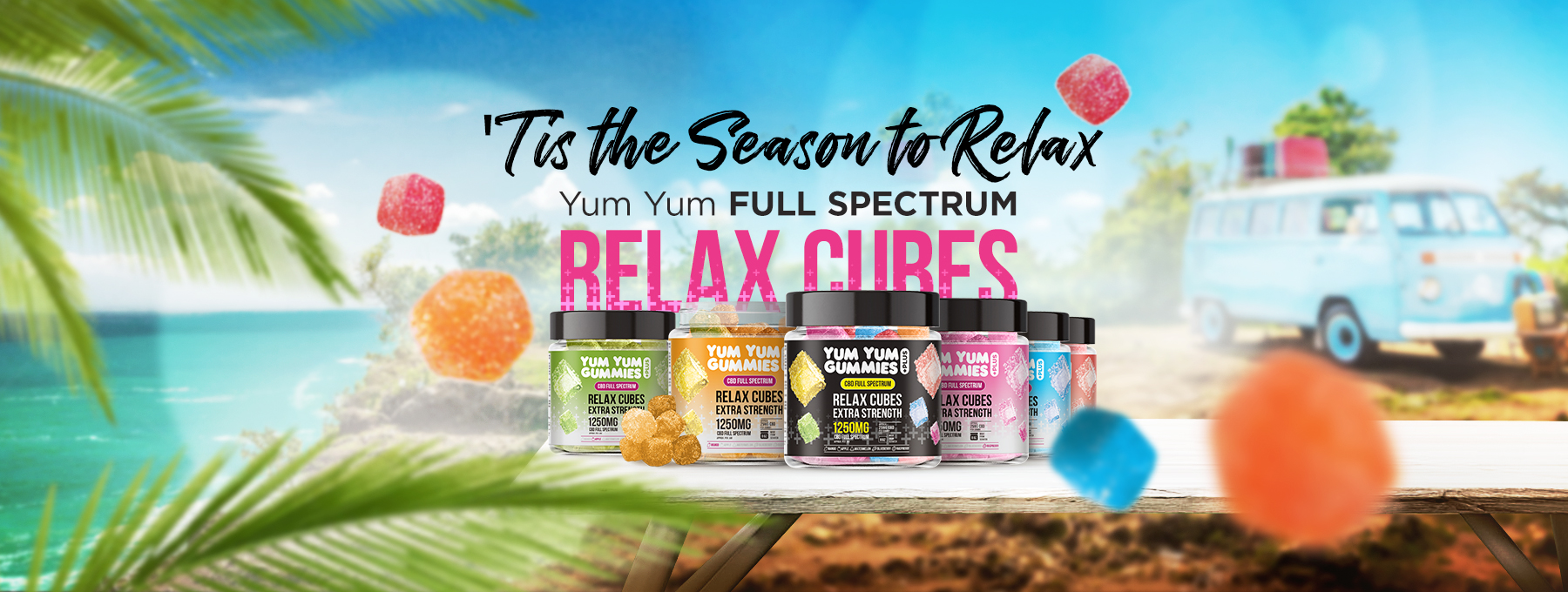Understanding CBG Oil and CBD Oil
The wellness industry has witnessed a surge in the popularity of hemp-derived products, with two prominent cannabinoids leading the way: CBG and CBD oils. This blog aims to provide a comprehensive comparison of CBG oil and CBD oil, shedding light on their unique properties, benefits, and potential uses. Although both oils are derived from the cannabis plant, they exhibit distinct characteristics and effects, making it essential to understand their differences before making a choice.
What is CBG Oil?
CBG, or cannabigerol, is a lesser-known cannabinoid found in the cannabis plant. While CBD and THC often steal the spotlight, CBG plays a crucial role as a precursor for other cannabinoids. The extraction process of CBG oil involves harvesting young cannabis plants since CBG is present in lower concentrations in mature plants. The concentration levels of CBG in the final oil may vary depending on the extraction method used. CBG oil holds promise for various therapeutic benefits, such as its potential anti-inflammatory and neuroprotective properties.
What is CBD Oil?
CBD, or cannabidiol, is one of the most abundant cannabinoids in the cannabis plant. The extraction methods for CBD oil include CO2 extraction, ethanol extraction, and other techniques that yield full-spectrum, broad-spectrum, or CBD isolate oils. CBD has gained immense popularity for its potential health benefits, ranging from pain relief and anxiety reduction to aiding in sleep disorders and managing epilepsy.
Key Differences Between CBG Oil and CBD Oil
|
Aspect |
CBG Oil |
CBD Oil |
| Cannabinoid | Cannabigerol (CBG) | Cannabidiol (CBD) |
| Abundance in Cannabis Plant | Present in lower concentrations | Abundant |
| Extraction Process | Harvested from young cannabis plants | Extracted from various parts of the plant |
| Primary Effects | Potential anti-inflammatory and neuroprotective properties | Analgesic, anxiolytic, and potential anti-inflammatory effects |
| Binding to Receptors | Binds to CB1 and CB2 receptors | Binds to various receptors in the endocannabinoid system |
| Psychoactive Properties | Non-psychoactive | Non-psychoactive |
| Common Uses | Glaucoma, inflammatory bowel disease, neurodegenerative disorders | Pain management, anxiety relief, and overall wellness |
| Entourage Effect with Other Cannabinoids | May work synergistically with CBD and other cannabinoids | May interact with other cannabinoids and terpenes to produce the entourage effect |
| Legal Status | Varies depending on the jurisdiction and THC content | Varies depending on the jurisdiction and THC content |
Chemical Composition and Effects
CBG Oil
- Anti-Inflammatory Properties: CBG may help reduce inflammation and could be beneficial in managing conditions like inflammatory bowel disease and arthritis.
- Neuroprotective Properties: Research suggests that CBG may have neuroprotective effects, potentially supporting brain health and aiding in the management of neurodegenerative diseases.
CBD Oil
- Analgesic Properties: CBD is believed to alleviate pain and discomfort by interacting with pain receptors and reducing inflammation.
- Anxiolytic Properties: CBD has shown promise in reducing anxiety and stress, making it potentially beneficial for individuals with anxiety disorders.
- Antioxidant and Anti-Inflammatory Properties: CBD’s antioxidant properties may help combat oxidative stress and support overall well-being.
- Epilepsy Management: CBD is the active ingredient in the prescription medication Epidiolex, which is approved for the treatment of certain forms of epilepsy.
Psychoactive Properties
A common misconception is that CBG and CBD oils can induce a psychoactive “high” like THC. However, both CBG and CBD are non-psychoactive compounds, meaning they do not alter consciousness or perception.
Complementary Interaction (Entourage Effect)
The entourage effect refers to the synergy between different cannabinoids and terpenes when consumed together. CBG and CBD may work together synergistically, enhancing each other’s therapeutic benefits. Combining CBG and CBD oils might offer unique advantages for certain conditions and symptoms.
Which One Is Right for You?
When deciding between CBG oil and CBD oil, several factors come into play. Each cannabinoid offers unique properties and potential benefits, making the choice dependent on individual needs and preferences. Below, we’ll explore some considerations to help you determine which one may be more suitable for you:
- Specific Health Concerns: Consider the specific health issues you want to address. CBG oil may be more appropriate for certain conditions like glaucoma, inflammatory bowel disease, and neurodegenerative disorders, while CBD oil has a wide range of applications, including pain management, anxiety relief, and support for overall wellness.
- Reaction to Cannabinoids: People may react differently to cannabinoids. Some individuals may find CBG more effective for their needs, while others might prefer the effects of CBD. It’s essential to start with a lower dose and gradually increase while observing how your body responds.
- Product Availability and Variations: Check the availability of CBG and CBD products in your region. CBD oil is more widely available and comes in various forms such as tinctures, capsules, topicals, and edibles. CBG oil may be less common, but its popularity is growing, and you may find a range of products that suit your preferences.
- Entourage Effect: If you believe in the entourage effect, combining both CBG and CBD oils could be beneficial. This synergistic interaction between cannabinoids and terpenes may enhance the overall therapeutic effects of the products.
- Legal Considerations: Understand the legal status of both CBG and CBD oils in your area. While CBD is legal in many regions, CBG’s legality might be subject to specific regulations based on its THC content.
- Personal Lifestyle and Goals: Your lifestyle and wellness goals can also influence your choice. For instance, if you’re seeking relief from anxiety or stress, CBD might be the preferred option. On the other hand, if you have specific medical conditions that preliminary research suggests CBG could help with, it might be worth exploring CBG oil.
- Consultation with a Healthcare Professional: Before incorporating any cannabis-derived product into your routine, it’s essential to consult with a healthcare professional, especially if you have underlying medical conditions or are taking other medications. They can offer personalized advice based on your health history and requirements.
Common Uses of CBG Oil
CBG oil is gaining attention for its potential therapeutic benefits in various health areas. While research on CBG is still in its early stages, preliminary studies and anecdotal evidence suggest that CBG may be effective in the following common uses:
- Glaucoma: CBG has shown promise in reducing intraocular pressure, which could be beneficial for individuals with glaucoma. High intraocular pressure is a major risk factor for glaucoma, and CBG’s potential ability to lower it may help manage the condition.
- Inflammatory Bowel Disease (IBD): CBG has demonstrated anti-inflammatory properties, and early studies on animal models suggest that it may be effective in reducing inflammation associated with conditions like ulcerative colitis and Crohn’s disease, which are forms of IBD.
- Neurodegenerative Disorders: CBG’s neuroprotective properties have sparked interest in its potential role in addressing neurodegenerative disorders like Parkinson’s and Alzheimer’s disease. Some studies suggest that CBG may help protect brain cells and slow down the progression of these conditions.
- Pain Management: CBG, along with other cannabinoids, may contribute to pain relief. Its interaction with the endocannabinoid system could help modulate pain perception and alleviate discomfort in certain conditions.
- Antibacterial and Antimicrobial Effects: CBG has shown promise as an antibacterial agent against various bacteria, including methicillin-resistant Staphylococcus aureus (MRSA). These properties make CBG a potential candidate for combating antibiotic-resistant infections.
- Appetite Stimulation: CBG has been studied for its potential to stimulate appetite, which could be beneficial for individuals with eating disorders or undergoing treatments that affect their appetite.
- Anti-Anxiety Effects: Some research suggests that CBG may have anxiolytic effects, helping to reduce anxiety and promote a sense of calmness. This could make CBG oil an option for individuals looking for natural anxiety relief.
- Antioxidant Properties: CBG exhibits antioxidant properties, which could contribute to overall cellular health by neutralizing harmful free radicals and reducing oxidative stress.
It’s important to note that while these potential uses show promise, further research is needed to fully understand CBG’s effectiveness and safety for specific health conditions. If you are considering using CBG oil for any particular health concern, it’s advisable to consult with a healthcare professional who can provide personalized guidance and recommendations.
Common Uses of CBD Oil
CBD oil has gained widespread popularity for its versatile applications and potential therapeutic benefits. While research is still ongoing, there is substantial evidence and anecdotal reports supporting its efficacy in various common uses, including:
- Pain Management: One of the most well-known uses of CBD oil is for pain relief. CBD interacts with the endocannabinoid system and may help reduce pain and inflammation in conditions such as arthritis, migraines, and chronic pain.
- Anxiety and Stress Reduction: CBD has shown promise in reducing anxiety and stress levels. It may interact with serotonin receptors in the brain, promoting a sense of calmness and relaxation without causing intoxication.
- Sleep Disorders: CBD may help improve sleep quality and address sleep disorders like insomnia. Its calming effects can promote better sleep patterns and alleviate difficulties falling asleep or staying asleep.
- Epilepsy and Seizure Disorders: The FDA has approved a CBD-based medication called Epidiolex for the treatment of certain forms of epilepsy, such as Dravet syndrome and Lennox-Gastaut syndrome. CBD’s anticonvulsant properties have shown promise in managing seizures.
- Neurological Conditions: CBD’s neuroprotective properties have led to investigations into its potential role in managing neurodegenerative conditions like Alzheimer’s and Parkinson’s disease.
- Mood Disorders: CBD’s interactions with the endocannabinoid system and serotonin receptors may make it a potential adjunctive therapy for mood disorders like depression and bipolar disorder.
- Skin Health: Topical CBD products, such as creams and lotions, have gained popularity for their potential benefits in addressing skin conditions like acne, eczema, and psoriasis due to their anti-inflammatory and antioxidant properties.
- Cancer-Related Symptoms: Some studies suggest that CBD may help alleviate cancer-related symptoms like nausea, vomiting, and pain associated with cancer treatments.
- Heart Health: CBD’s potential ability to lower blood pressure and reduce stress may have implications for heart health and the prevention of cardiovascular conditions.
- Addiction and Substance Abuse: Early research indicates that CBD may help reduce drug cravings and withdrawal symptoms, making it a potential aid in addiction management.
It’s important to remember that while CBD oil shows promise in these areas, it is not a one-size-fits-all solution. Individual responses to CBD may vary, and it’s essential to consult with a healthcare professional before incorporating CBD oil into your wellness routine, especially if you have underlying health conditions or are taking other medications. Additionally, dosage, product quality, and method of consumption can all play significant roles in the effectiveness of CBD oil for specific uses.
Conclusion
When considering CBG oil vs. CBD oil, it is evident that both cannabinoids have their own strengths and potential uses. CBG oil holds promise for conditions like glaucoma, inflammatory bowel disease, and neurodegenerative disorders, while CBD oil offers a wide range of applications, including pain management, anxiety relief, and better sleep. As with any supplement or natural remedy, it is essential to prioritize safety and consult with a healthcare professional before integrating these products into your wellness routine.
If you are interested in exploring the potential benefits of CBG or CBD oil further, we recommend checking out the high-quality products offered by Leaf Alleviate. Their range of carefully crafted and third-party tested oils may provide the perfect solution for your individual needs. To learn more about their products and discover which one suits you best, visit Leaf Alleviate’s website and make an informed decision on your journey towards enhanced well-being.
FAQs
Q: Is CBG oil legal?
CBG oil’s legal status may vary depending on the jurisdiction and the THC content. It is essential to check local regulations before purchasing or using CBG oil.
Q: Can CBG and CBD be taken together?
Yes, CBG and CBD oils can be taken together safely. In fact, combining them may lead to enhanced benefits due to the entourage effect.
Q: Will CBG or CBD oil make me high?
No, CBG and CBD oils are non-psychoactive, and they do not produce a “high” like THC.
Q: Are there any side effects of CBG and CBD oil?
While CBG and CBD are generally well-tolerated, some individuals may experience side effects like dry mouth, dizziness, or changes in appetite. Proper dosing and individual tolerance levels are crucial.
Q: How do I determine the right dosage of CBG or CBD oil for me?
Determining the right dosage depends on various factors, including individual body chemistry and the condition being addressed. It is best to start with a low dose and gradually increase while closely monitoring the effects. Consulting with a healthcare professional or a knowledgeable specialist can be beneficial in finding the appropriate dosage.

